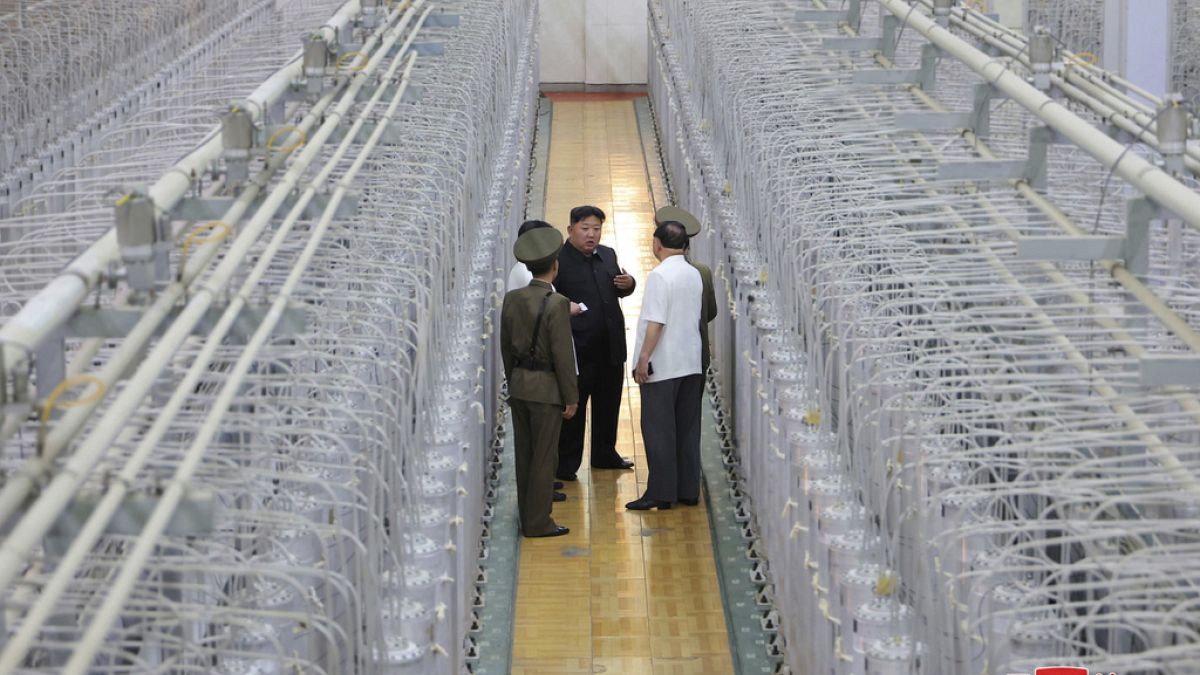Georgia’s pivot to Russia ‘might be a plan,’ president says
Georgia's President Salome Zourabichvili faces a second impeachment attempt over her visits to European capitals.
“Where are you taking Georgia?”
This is the question Georgian President Salome Zourabichvili has for Bidzina Ivanishvili, the billionaire oligarch under whose influence the Georgian government has been appeasing Moscow, to the detriment of the country’s European future.
“I’m not into conspiracy theories, but it might be a plan,” Zourabichvili, a staunch supporter of Georgia’s European Union integration, told POLITICO in an interview. “It might be that [Ivanishvili’s] ties with Moscow are still there and have gotten tighter.”
The rationale behind the ruling Georgian Dream party’s sudden U-turn on its commitment to the European path fundamentally remains perplexing, even to Zourabichvili. While pressure from Moscow is one possibility, she adds, it’s hard to speak of a master plan without proof.
“The whole history of Georgia shows that the main risk for Georgia comes from Russia. The risk of war increases when Georgia is isolated from its partners, when it’s alone, divided and weak. I don’t have a logical, rational explanation for it,” said the president.
The upcoming parliamentary elections, set for Oct. 26, will determine whether Georgian Dream cements the country’s place in the sphere of Russian influence, or whether it will be governed by the pro-Western opposition, which has promised to rebuild ties with the EU and the United States.
Although Georgia received EU membership candidate status in December 2023, its EU accession process is currently frozen due to democratic backsliding and its government’s anti-Western rhetoric.
In May, the ruling party adopted a Russian-style law on foreign agents which designates civil society groups that receive more than 20 percent of their funding from abroad as “pursuing the interests of a foreign power.”
The bill prompted widespread backlash from Georgian and international groups, with the EU warning that Tbilisi’s accession to the bloc is off-limits unless it recommits to a European path.
In turn, the Georgian Dream government has become even more hostile toward Western partners, accusing them of attempting to overthrow the government and of wanting to start a second front of the Ukraine war in Georgia.
The shift has been welcomed in Russia, with the editor-in-chief of state media outlet RT praising Ivanishvili’s government for acting “disconcertingly appropriately.” Russian Foreign Minister Sergey Lavrov has also praised the Georgian government for resisting a Western agenda and adopting laws on foreign influence and LGBTQ+ propaganda.
Georgian Dream has insisted that although Ivanishvili accumulated his wealth in Russia, his ties with Moscow have long been revoked. A recent investigation by anti-corruption outlet OCCRP suggested Ivanishvili’s family still owns and profits from properties in Moscow — accusations the party has dismissed as false.
Future hanging in the balance
The October elections are “existential,” Zourabichvili has said — but remained cautious about predicting their outcome. A recent public opinion survey showed that Georgian Dream leads in the polls with 32 percent of the vote.
She is hopeful that pro-European forces will prevail and Georgian Dream will fall short of a constitutional majority, though acknowledged that it might still gain a significant share of votes, considering the possibility of election fraud.
And she is uncertain about what kind of politics Georgian Dream would pursue — whether the government will deliver on its radical promises, such as banning virtually all opposition parties, or try to rebuild relations with the EU.
“It will be quite difficult for them to renew any form of relations with the European Union and the American partners after the amounts of attacks that they have been throwing [at them],” she said.
“I don’t know whether they are in the mood of making … serious concessions to return to some form of business as usual,” she continued, citing the example of withdrawing the foreign agents law.
Ahead of the coming vote, Zourabichvili embarked on a tour of the European capitals to declare the Georgian people’s commitment to European values, despite their government’s anti-Western rhetoric.
However, because these visits were not authorized by the government, the ruling Georgian Dream party is seeking to impeach her — for a second time, after a first attempt last year failed.
The president’s office told POLITICO that she was visiting Europe in a private capacity rather than in an official one, as they didn’t expect the government to issue authorization.
Zourabichvili’s presidential term will end this year.
Asked how she feels about her legacy, she expressed pride in her efforts to unite the opposition. In May, she authored the Georgian Charter, which brings together several pro-European parties under common reform goals and commitments to free and fair elections.
Her biggest regret? “That we missed the first chance to open negotiations [with the EU].”
“If the pro-European forces and the parties behind the charter win the elections, I will probably be with them to carry this charter to the next European Council and secure the opening of negotiations, in whatever position — and that’s still to be defined,” Zourabichvili said.
What's Your Reaction?


















































